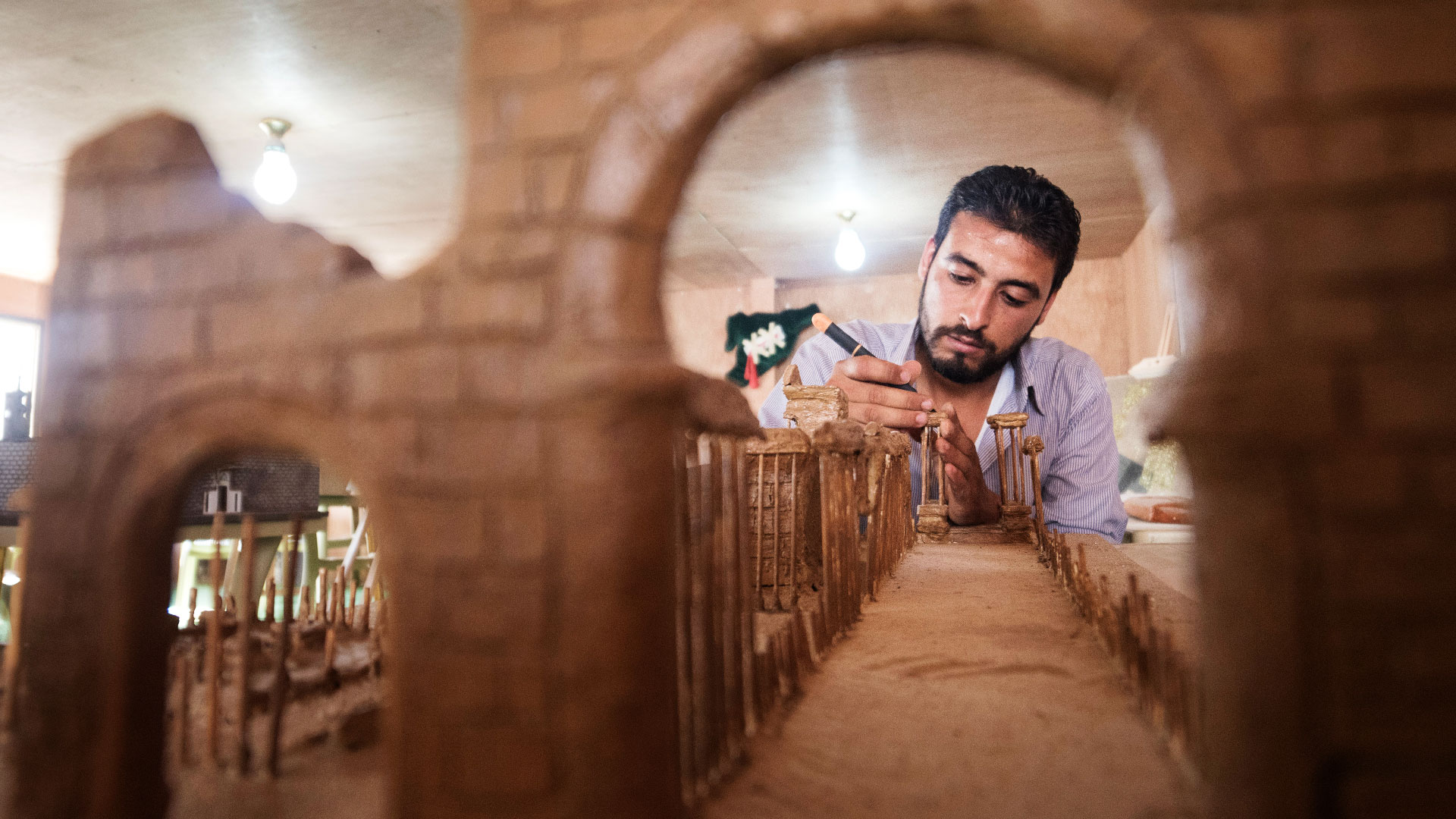Arts festival eases tension between Colombian refugees and local communities in northern Ecuador
Arts festival eases tension between Colombian refugees and local communities in northern Ecuador

LITA, Ecuador, 9 March (UNHCR) - Under the hot equatorial sun, a three-metre tall human figure dressed up in bright attire appears in the distance. Slowly, it makes its way towards the town centre where several hundred people have gathered in anticipation.
The strange creature is one of the young participants in an arts festival that's been organised by UNHCR in the rural parish of Lita. For the past few months he's been learning to walk on wooden stilts, and now he can demonstrate his skills to everyone.
The arts festival is the result of a project started by UNHCR and its local partner, Fundación Desarrollo, Acción y Vida in June 2005 to promote understanding and reduce tensions between communities. Some 250,000 people live in the parish of Lita, which has a population of both Ecuadorians and Colombians who come from several different ethnic groups - mestizos, Afro-Ecuadorians and Awá indigenous people. Many of the Colombians arrived in Lita, some as refugees, after fleeing violent conflict in their homeland.
Last year, UNHCR and the local authorities conducted a study to assess the needs of Colombian refugees in the area and identify ways of helping them and the communities in which they live. The study found that relations between different groups and communities in the parish were very tense, often leading to conflict. The Arts Project, supported by UNHCR and the local authorities, was set up in an effort to improve relations.
The idea behind the project is to help each community reconnect with its traditional cultural values in order to be able to share them with other groups. The project's organisers also hope that the initiative will help the people of Lita capitalise on their region's natural beauty and attract more tourism. Lita, situated at the convergence of three provinces in northern Ecuador, is part of a natural reserve area known as Cotacachi-Cayapas.
"By getting more in touch with their own culture," says Sandra Chamorro, the project's organiser, "the people of Lita will be better able to share their cultural heritage with other inhabitants. They may also be able to use their dances, legends and local food to attract tourists, since Lita is a potentially attractive tourist destination."
The show starts with a traditional Afro-American dance, followed by a performance on stilts of a traditional legend adapted to address a very modern problem, that of environmental pollution. At the end of the play, one of the actors calls on the people of Lita to preserve the area's ecosystem. The next performance is by a band known as "banda mocha" for the type of traditional music it plays. The project supported the band and its members by supplying music lessons as well as the instruments. Out of the 15 band members, three are refugees. One of them, 27-year-old Dario, arrived in Lita from Colombia just over a year ago. He says the project was a lifeline for him.
"I never expected to get support for playing guitar, which is my real passion," he says. "Since arriving in Ecuador I have worked in carpentry and in agriculture in order to survive. Being able to dedicate time to music has helped me not to dwell on bad thoughts, it puts me in a better mood. I have been able to get to know the other band members who are now like my family in this country."
The final performance is by a musical group that uses a "marimba", a musical instrument typical of the Awá indigenous groups. For many in the audience, it is the first time they have ever seen or heard one.
"Lita is a model of what can be done to help a small community organise itself to cope better with the tensions associated with different groups living together on the same land," says Sandra Chamorro. "Being so close to the border, Lita cannot be oblivious to the troubles on the other side and the people here are showing great generosity and solidarity with Colombian refugees."
Across Ecuador, there are an estimated 250,000 Colombians of concern to UNHCR. As well as working with the authorities to ensure their protection, the refugee agency provides refugees and host communities with help in the areas of health, education and income generation.
By Xavier Orellana in Lita, Ecuador









